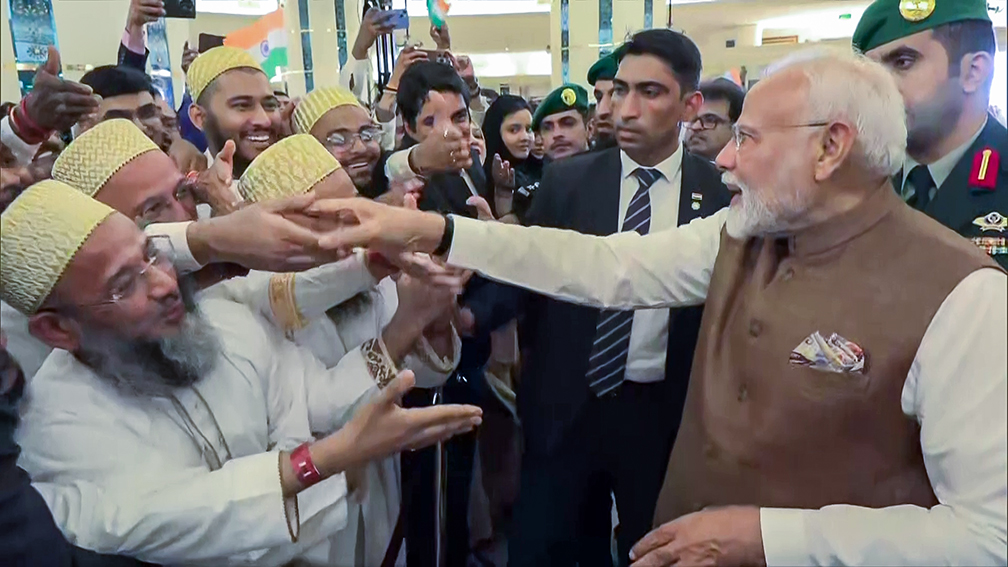News24 Exclusive | ‘Not Just Terror – It’s Geopolitics’: Ex-UN Envoy T.P. Sreenivasan Predicts Pakistan’s Next Move! Exposes Pahalgam Plot News24 –
The fire from the pyre has yet to be lit, while others wait for their turn for burial. Families stand beside them, trapped in trauma, unable to cry, grieve, or bid farewell. The sound of gunshots and the sight of blood haunt them, as their comrades desperately tried to shield them, taking bullets to the chest during the Kashmir Pahalgam terror attack on Tuesday afternoon (April 22nd). Although India has taken significant political and diplomatic steps against Pakistan, the loss of 26 lives, from South to North India, continues to deeply wound the nation. Was it merely a terror attack, or is Pakistan intentionally escalating the Kashmir issue while grappling with its economic crisis and other challenges? Former Diplomat and Ex-UN Envoy T.P. Sreenivasan Speaks Exclusively to News24.
“It’s Not A Terrorist Attack”
“In my view, this is not merely a heinous terrorist attack- it is a calculated geopolitical move by Pakistan. Look at it from Pakistan’s perspective: the country is virtually bankrupt, largely isolated on the international stage, and locked in conflict with India. Meanwhile, India enjoys broader global recognition. India has strong relations with the U.S. and Russia, and its relationship with China has also started to improve. Today, India is perhaps the only country that can speak openly with any key players involved in this contention.” Said Ex-Envoy T.P Sreenivasan. He emphasised Pakistan’s calculated use of terrorism to compensate for its economic bankruptcy, diplomatic isolation from the stronger countries, and the military inferiority relative to India’s global standing.
Push The Kashmir Issue Onto UN Table
“The Pahalgam attack was intended to provoke global attention and push the Kashmir issue onto the agenda of the United Nations Security Council (UNSC). The strategy behind this is to accuse India of not implementing an old UN resolution on Kashmir, using that as a pretext or excuse to call for international intervention in the matter.” T.P. hinted that Pakistan is using a long-term strategy to keep the Kashmir issue unresolved- deliberately preventing any final solution- so that it stays a geopolitical bargaining chip.
Simla Agreement
There’s an old path rooted in the Simla Agreement, which Pakistan now claims it no longer accepts. That agreement had essentially redrawn the borders. At the time, both sides agreed to adjust the Line of Control to eventually turn it into an international border. However, Pakistani President Zulfikar Ali Bhutto backed out of that understanding, and Pakistan has never officially acknowledged it. As a result, the issue remains unresolved.
According to Sreenivasan, India should actively explore this area to determine whether it can take decisive action, steps that could weaken Pakistan’s position, even if they risk triggering a larger crisis. Now, Pakistan is trying to redefine its future role and relevance, much like the situation Hamas has found itself in.
What Is Simla Agreement
The Simla Agreement was a peace deal signed between India and Pakistan after the 1971 war. One important result of this agreement was the creation of the Line of Control (LOC), which divided Kashmir between the two countries. The agreement required both countries to return prisoners of war, withdraw their armies, and resolve future issues through direct talks between India and Pakistan—without involving other nations.
India and Pakistan signed it on July 2, 1972, in Shimla, Himachal Pradesh, following India’s victory in the war that led to the creation of Bangladesh. It became an important moment in South Asia’s political history.
These objectives aim to reposition Pakistan as a relevant actor in South Asia, despite the risks of escalation, as seen in India’s IWT suspension and other retaliatory measures. The reference to the Simla Agreement underscores Pakistan’s long-term strategy of avoiding bilateral resolutions to keep Kashmir as a geopolitical tool, aligning with the diplomat’s call for India to probe actions that pressure Pakistan strategically without triggering a broader conflict.

Pakistan In Desperate For A War With India
“Pakistan feels that unless the Kashmir issue is raised again, specifically by bringing India before the UN Security Council to argue that it has not complied with historical UN resolutions, they will lose a key point of leverage. This is the route they tend to take, especially during global upheavals. For instance, after the Cold War ended, Pakistan made a desperate push to bring Kashmir to the forefront, similar to how Hamas has recently revived the Palestine issue.” T.P. said
According to the ex-diplomat, they likely aim to do the same now. Even though they may not have much hope of success, they see ongoing violence and terrorism as a window for the Security Council to intervene or influence behaviour in the region. There’s also the added concern over nuclear weapons. Unlike India, Pakistan does not follow a ‘no first use’ policy, and it has often hinted at escalating conflicts with nuclear threats.
These are extremely dangerous dynamics, and that’s where the international community may step in to restrain both sides from going too far. But Pakistan’s desperation, combined with a lack of international support, may push it to prefer international intervention over a potential civil-military confrontation at home.
Written By
Lakshmi Ranjith
Apr 26, 2025 13:07

